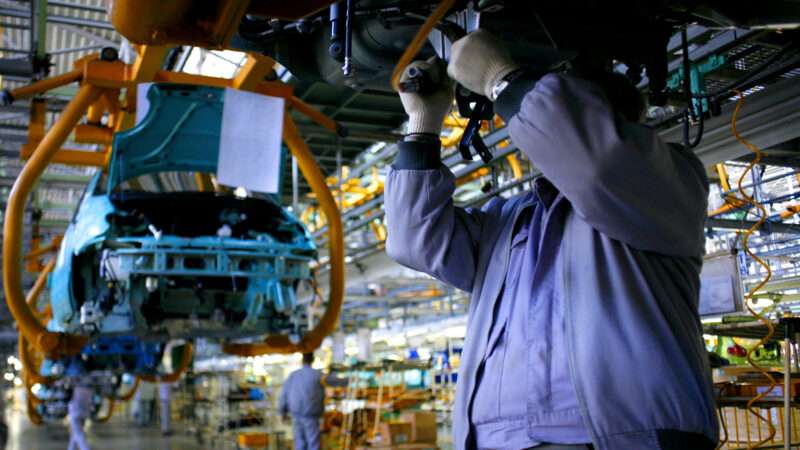
One of the world’s largest automakers is making a huge investment in U.S. manufacturing, but, as usual, local taxpayers aren’t getting off scot-free.
Last week, Ohio Gov. Mike DeWine made a major announcement: Honda, as part of its pledge to sell only electric vehicles (E.V.) by 2040, will spend over $4 billion building up its electric manufacturing capacity in the Buckeye State. That amount includes $3.5 billion to build a new battery plant in partnership with LG Energy Solution, plus $700 million to retool three existing Ohio Honda plants for E.V. production. The Japanese auto giant claimed the investment will create over 2,500 jobs.
The governor’s announcement said the state would “consider a tax credit” and that his administration “plans to work with the General Assembly to secure state funding” for site preparation. Later in the week, the Ohio Department of Development announced that it would be seeking more than $150 million in state incentives: $71.3 million for a 30-year tax credit and $85 million in local infrastructure improvements to support the new plant.
Of course, all of that money comes from state taxpayers, and each dollar spent on Honda is one dollar less spent to the benefit of the Ohioans it came from. And this may just be the start.
“The $150 million price tag isn’t final,” John Mozena, president of the Center for Economic Accountability, which opposes corporate welfare, tells Reason. “The real subsidy money in Ohio comes from JobsOhio.” How? Well, Ohio’s Department of Liquor Control has a monopoly on “the manufacturing, distributing, licensing, regulation, and merchandising” of all alcohol. JobsOhio is a private, nonprofit corporation created by state law that collects the revenues from state liquor activity and invests any profits into state development projects.
Despite receiving public funding and deciding how it’s spent, JobsOhio is exempt from most public ethics laws and the Ohio Public Records Law. A JobsOhio spokesman said last week that the firm would not release information about potential funding for the Honda factories until a final deal was reached.
Citing his organization’s research, Mozena points out that “automotive manufacturers make decisions…based on industry trends and general business conditions, not state subsidies. For instance, it was only two years ago that General Motors shut down its Lordstown plant [in Ohio] despite tens of millions of dollars in ‘job creation’ subsidies in place. But don’t worry about G.M., they still got to keep about $20 million in subsidies for creating jobs that no longer existed.”
Considering that Honda already pledged more than $4 billion to the project and that the company’s market cap is nearly 10 times that amount, forking over $150 million in incentives seems trivial. Plus, JobsOhio could kick in more funding as well. That presents two unappealing possibilities: Either the state gives a small fortune to a company that doesn’t need it, or an unaccountable agency with access to public money kicks in even more funding, money that won’t be used elsewhere on something that benefits the state as opposed to a major automaker.
“Tax incentives to specific companies are not the best way to generate widespread, sustained economic growth,” Rea Hederman Jr., vice president of policy at The Buckeye Institute, an Ohio-based free market think tank, tells Reason. “Instead, better economic policy is to have lower tax rates so all companies from small to large can grow.”
The post Ohio Pledges Over $150 Million in Taxpayer Money for Honda Factories appeared first on Reason.com.
from Latest https://ift.tt/ECwJ62d
via IFTTT